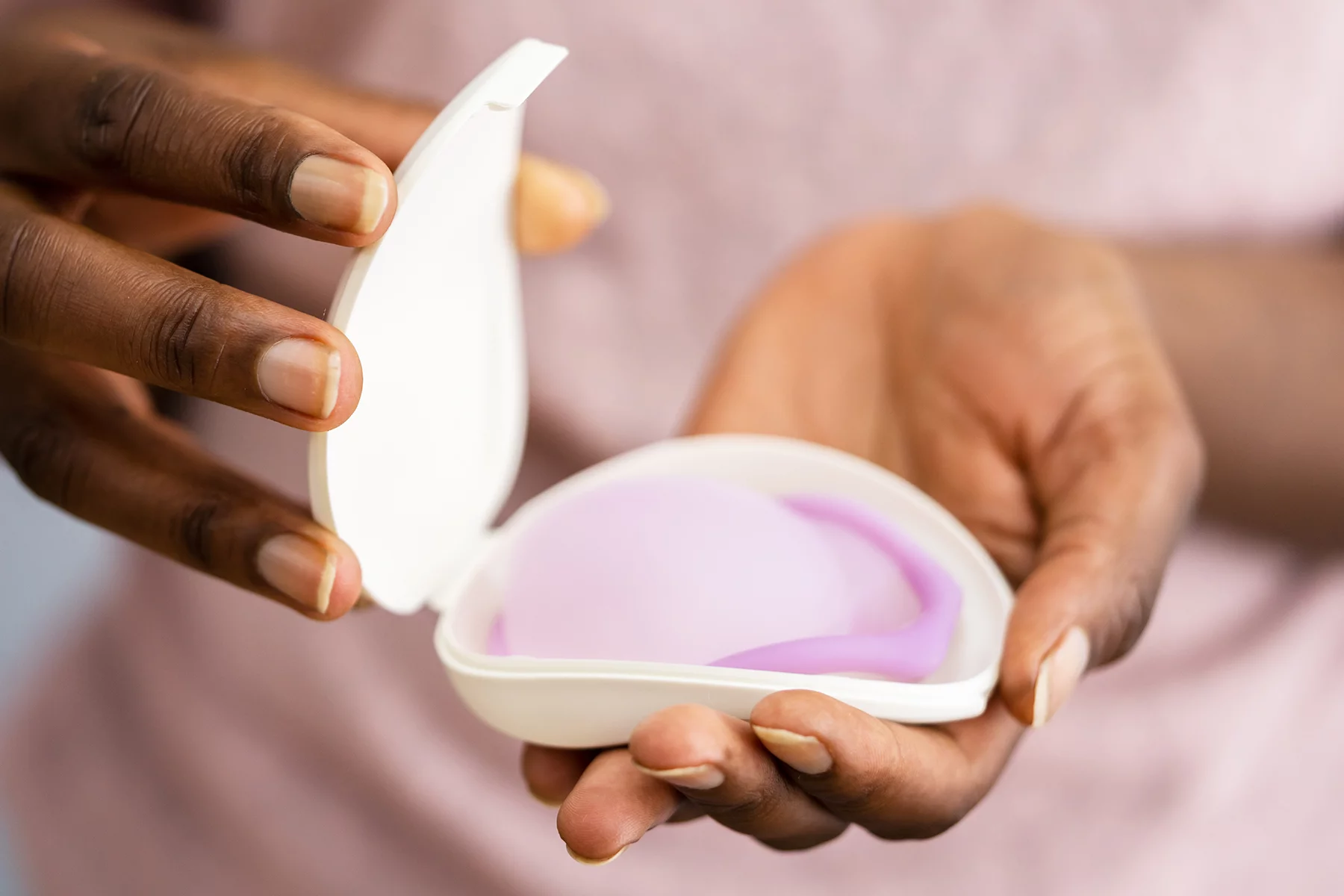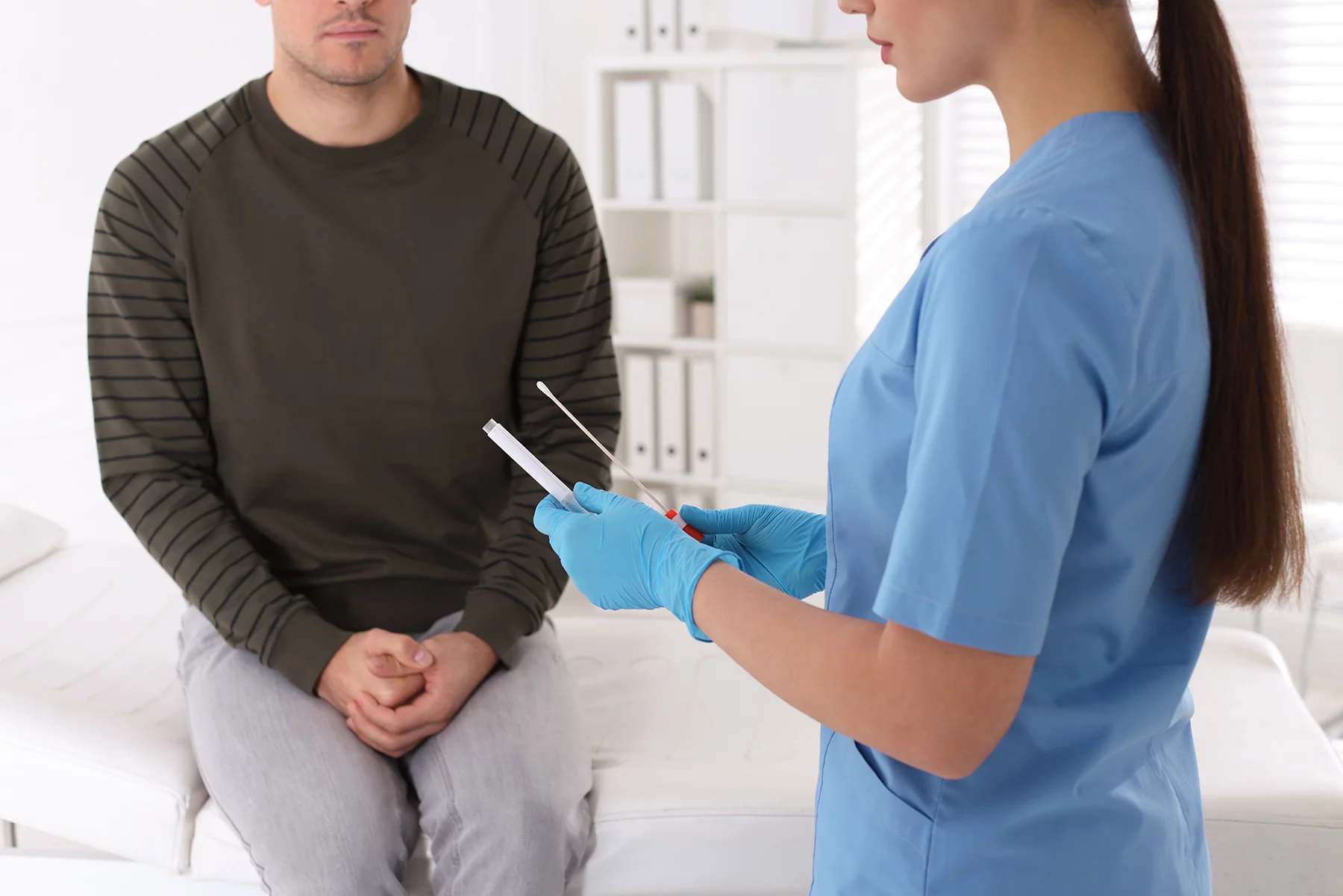For expats moving to Austria, learning how to access and navigate the various sexual health services on offer can feel daunting; especially if you don’t speak German and face a language barrier. So to help you understand more, this article explains the following:
- Attitudes towards sex and sexuality in Austria
- Accessing sexual health services in Austria
- Insurance for sexual and reproductive healthcare
- Contraception
- Pregnancy and childbirth
- Abortion in Austria
- STIs and STDs
- Erectile dysfunction treatment
- Feminine hygiene products
- Cancer screenings in Austria
- Services dealing with sexual problems
- Young people’s sexual health
- Sexual health for the LGBT+ community
- Useful resources
Cigna Global
Enjoy peace of mind while living in Austria with Cigna Global’s long-term international health insurance plans (12+ months). Get tailored coverage, direct billing with many providers, complex case management, and global care on demand, with access to a network of 1.5+ million doctors, specialists, and therapists.
Attitudes towards sex and sexuality in Austria
Generally speaking, attitudes towards sex and sexual health in Austria are similar to those in Germany and other central European countries. Austria is still very much a traditionally Catholic country and this is evident in its conservative views towards marriage, sex, abortion, and gender roles. For instance, many people still regard marriage as an important rite of passage. Indeed, before the COVID-19 pandemic brought disruptions to people’s daily lives, the annual number of marriages in the country rose to 41,111 in 2021; a level even higher than that of the 1980s and 1990s.

Despite these traditional values, attitudes towards things like same-sex relationships and abortion have become more progressive in Austria. In fact, 1,401 same-sex couples have tied the knot since same-sex marriage was legalized in 2019; 191 have also converted their registered partnerships into marriages.
Similarly, abortion has been fully legal in Austria since 1975; after The Austrian Social Democratic Party led the charge to relax the laws back in the 1920s. Furthermore, a recent study on safe sex also reveals that Austrians are becoming laxer with contraception; with 30% of people aged over 40 and 26% of adolescents aged 16 to 20 claiming to have not used any in 2019.
Accessing sexual health services in Austria
In Austria, public health insurance covers sexual healthcare and people consider this to be part of a well-rounded, healthy lifestyle. Your general practitioner (Hausartz) is typically your first port of call for any issues relating to your sexual health. They can write prescriptions for most medications and perform general health checks. This includes preventative and diagnostic care, which is free with public health insurance.

You can fill prescriptions, seek medical advice, and purchase over-the-counter treatments, such as creams for treating a yeast infection, at a local pharmacy (Apotheke). You can also purchase items such as condoms or hygiene products at a local drug store (Drogerie).
If you need to see a gynecologist (Frauenarzt), urologist (Urologe), or another specialist, your Hausartz can also write you a referral letter. And conveniently, you will likely not need additional referrals to see the same doctor after your first visit. A Hausartz or sexual health specialist can also refer you for additional sexual health services or tests at a hospital clinic or diagnostic center. This includes blood tests (Blutabnahme), mammograms (Mammographie), ultrasounds (Ultraschall), and cancer screenings.
You can also access online English-language sexual health consultations with doctors through platforms such as Mobi Doctor.
Insurance for sexual and reproductive healthcare
Fortunately, accessing sexual health services in Austria is fairly straightforward. However, you will first need to arrange insurance with a public health insurance company (Krankenkassen). There are several of these in Austria, but the largest is Österreichische Gesundheitskasse (ÖGK).
Notably, your health insurance can be private, public, or a combination of both. There are many private health insurance providers in Austria, all of which are regulated by the Financial Market Authority. Expats in Austria can also benefit from international insurance, which covers medical treatment in Austria and abroad. Global providers include:
Insurance companies typically offer a range of plans to suit all people and situations. Generally, the older you are the more you will pay. For example, a plan for children below 18 could cost around €30 per month. However, the same plan for someone above 65 may cost as much as €450 to €500 per month. Additional factors include both gender and pre-existing conditions. You can read more about this in our article on getting health insurance in Austria.
Once you have arranged your insurance, you will receive a health insurance card (e-card). You must bring this with you when you visit the doctor. Notably, if you are from the European Union (EU), European Economic Area (EEA), or Switzerland, and are only staying in Austria temporarily, you may use your European Health Insurance Card (EHIC) to access sexual health services in Austria.
What to do if you are uninsured
If you have a sexual health emergency before you have set up your insurance, you can seek treatment at a hospital or clinic. You can use travel insurance to cover some medical emergencies. Alternatively, there are some walk-in clinics that provide treatment to the uninsured. These tend to be located in cities and are often run by volunteers and also support refugees.
Throughout Austria, women can also call the 24-hour Frauenhotline on 01 71 71 9 for support, advice, and counseling, especially if they have experienced violence or abuse. The Department of Women’s Affairs in Vienna (MA 57) operates this public service.
Contraception
According to a recent report on birth control usage in Austria, 78% of the population uses some form of birth control. While many forms of contraception (Verhüttungsmittel) are available throughout the country, public insurance does not fully cover them. That said, some are subsidized and are therefore cheaper with a prescription.
The Austrian Family Planning Association (Österreichische Gesellschaft für Familienplanung/OGF) provides family planning services throughout the country. You can read more about this in our article on women’s healthcare in Austria.
Condoms
Male condoms (das Kondom/Präservativ) are available at drugstores, pharmacies, grocery stores, and some bar bathrooms. A pack of eight costs between €2 and €7. Female condoms (das Frauenkondom/Femidom), on the other hand, are usually only available to buy online.
The birth control pill and the morning-after pill
The birth control pill (die Anti-Baby-Pille), is partially subsidized by all Austrian health insurance groups. It typically costs between €4 and €15 per month with a prescription. However, you can purchase it without one, too. The mini-pill (die Mini-Pille), which has a lower dose of hormones, is also frequently prescribed. A pack of pills from the brand Selina costs approximately €22 for a six-month supply with a prescription.

The morning-after pill is available at all Austrian pharmacies without a prescription. There are two types of pill available, and your pharmacist will ask which one you want. The pill containing Levonorgestrel (die 72-Stunde pille) costs about €17, and you can take this within 72 hours of having unprotected sex. The other pill, which contains Ulipristalacetat and costs around €39, is effective up to 120 hours after having unprotected sex. This is called die 120-Stunde pille.
Intrauterine devices (IUD)
One of the most secure and low-maintenance forms of birth control available in Austria is the IUD. However, it is also one of the more expensive. Public health insurance does not cover the placement and removal of an IUD and this will cost you about €500.
There are two types of IUDs available. The copper IUD (die Kupferspirale/ die Kupferkette) contains no hormones, and can prevent pregnancies for three to ten years. Hormonal IUDs (die Hormonspirale), on the other hand, contain the hormone progestin and can last up to twelve years. Standard gynecological visits cover check-ups for all IUDs.
Birth control injections and implants
Birth control injections (die Dreimonatsspritze) cost around €30 and are administered every 12 weeks in a doctor’s office. The injections contain the hormone progestin. The birth control implant (das Hormonimplantat) is a tiny rod containing progestin that the doctor injects into your arm. It lasts up to three years and costs around €300 to €350. Private health insurance can cover implantation.
Other forms of temporary birth control
The diaphragm (das Diaphragma) costs about €40 and has to be fitted by a gynecologist. Additionally, spermicide costs about €10 a tube. The FemCap is similar to the diaphragm but can be worn for up to 48 hours and costs about €50. A doctor also needs to fit this in order for it to work.

The birth control ring (der Vaginalring) costs around €19 per piece with a prescription. It releases hormones to prevent pregnancy. The woman can replace the ring herself each month, and this is similar to inserting a tampon.
Similar to the birth control ring, birth control plasters can also be replaced each month. They contain hormones and are affixed to the skin. Birth control plasters (das Verhütungspflaster) are available to buy in packs of nine for about €43, under the brand name Evra.
Vasectomies and hysterectomies
Sterilization procedures are the most permanent form of birth control available in Austria. However, public health insurance only covers a hysterectomy (or tubal ligation) in medical emergencies and this can cost women up to €2,000 out-of-pocket. Meanwhile, a male vasectomy can cost up to €900. Both procedures are technically reversible, but insurance doesn’t cover them, and they can cost up to €4,000.
Pregnancy and childbirth
Austria provides many health services to support new parents. For example, if you have a baby while living in the country, you will have access to excellent pre- and post-natal care with the mother-child health passport (Mutter-Kind Pass). State health insurance also covers midwife services. You should contact your insurance provider about three months before giving birth to secure insurance for your newborn.
By law, women may have at least one year of maternity leave or wait until the end of their child’s second year before returning to work. Fathers can take a month off work when the baby first arrives (Papa-Monat), or go on paternity leave (Vaterschaftskarenz) instead of the mother. You can read more about this in our article on having a baby in Austria.

Sebastian Arthofer
Krankenversichern
Insider tip: Fertility treatments
Fertility treatments, including procedures like in vitro fertilization (IVF), are not typically covered by public or private health insurance. These services must be paid for out-of-pocket, so planning for these costs in advance is essential.
Abortion in Austria
Abortion has been legal in Austria since 1975 and is available both surgically and via medication at medical clinics in the country. However, there are some restrictions. A woman can have an abortion in a hospital during the first three months of her pregnancy. She can only have the procedure after this period if there is a physical or mental health threat to her, an incurable problem with the development of the fetus, or if the patient is under the age of 14.
It is important to be aware that Austrian public health insurance does not cover abortion. Therefore, unless it is performed for medical reasons, it is an out-of-pocket expense. The cost of the procedure can range from €300 to €800, and there may be additional costs that vary from clinic to clinic. You can read more about abortion rights in Austria here.
STIs and STDs
The World Health Organization (WHO) reports that more than 30 different bacteria can be spread through sexual contact. In Austria, most STIs are easily treatable with antibiotics or anti-parasite therapies. Even HIV can be managed for a fairly high quality of life.

That said, some STIs such as syphilis and gonorrhea are becoming resistant to drugs that had effectively treated the infection for years. Some scientists attribute this to people having less safe sex (with a condom) now that fears of dying from HIV have lessened.
To get an STI test, you first need to visit your family doctor, gynecologist, urologist, dermatologist, or a clinic at a hospital. You can also go to an organization such as Aids Hilfe for STI tests for gonorrhea, syphilis, chlamydia, and hepatitis. Most STI tests are free of charge with public health insurance. Some private organizations also offer anonymous tests for STIs, but they are expensive.
Notably, the HPV vaccine, which can prevent infections that lead to uterine and cervical cancer, is available for free in Vienna for all children under the age of 12. It costs €63 for teens up to the age of 16 as a make-up vaccination due to COVID-19. In other federal states, the HPV vaccine is also free for older children.
HIV/AIDS in Austria
The UN AIDS report estimates that there are approximately 9,000 people living with the virus in Austria, consisting of around 0.1% of the total population. In 2020, 332 new cases were diagnosed in the country, which was the lowest number of cases reported in a decade. Austria does not limit entry to the country to people carrying HIV/AIDS.
If you want to have a test, you can make an appointment with your general practitioner, go to a walk-in clinic at a hospital, or visit a private testing center such as Aids Hilfe in Vienna, Lower Austria, and Burgenland. The organization offers support to people who are living with HIV/AIDS. It also offers a wide range of testing services for HIV and other sexually transmitted infections (STIs) to those who believe they may have been in contact with them. Treatment typically consists of a combination of antiretroviral drugs to reduce the viral load.
Erectile dysfunction treatment
There are several causes of erectile dysfunction (Erektionsstörung/Erektile Dysfunktion). Pfizer estimates that between 250,000 and 700,000 men suffer from some type of erectile dysfunction in Austria, and this tends to affect older men proportionally more than young men.
In Austria, the first step to seeking treatment is to visit your general practitioner. They will likely ask you to rate your condition using the International Index of Erectile Dysfunction. If necessary, they can refer you to a urologist for further treatment.
While public health insurance partially covers erectile dysfunction treatments, it does not fully cover erection-enhancement drugs like Viagra, which require a prescription. Some treatments may also involve seeing additional specialists, including mental health professionals. Insurance typically covers these treatments but there may be some out-of-pocket costs, too.
Feminine hygiene products
Many feminine hygiene products are readily available in larger grocery stores and supermarkets in Austria. However, chain drug stores (Drogerie) such as Müller, DM, and Bipa stock a much larger selection. Public health insurance doesn’t cover most feminine hygiene products, such as tampons, sanitary towels, menstrual cups, and sponges. That said, they are generally affordable and easy to access. For example, you can purchase store-brand tampons and pads for between €1.50 and €3. Menstruation panties, on the other hand, are among the more expensive hygiene products available at a Drogerie, and cost around €20.

Environmentally friendly, sustainable products are also widely available, alongside more traditional international brands like Tampax or OB. Notably, some specialty items are prescription-only and are available at a pharmacy (Apotheke). Pharmacies also carry non-prescription products that tend to be more expensive and luxurious than those available at Drogeries.
Below is a list of hygiene products that you will typically find at a Drogerie:
- Period pads: Damenbinden/Binden
- Tampons: Tampons/OBs
- Menstrual cup: Menstruationstasse
- Panty liner: Slipeinlagen
- Intimate care: Intimpflege
- Products for leaky bladder and incontinence: produkte für Blasenschwäche und Inkontinenz
- Incontinence panties: Incontinenzslip
Cancer screenings in Austria
In 2016, a symposium took place in Austria that focused on improving public participation in sexual healthcare programs and expanding public awareness of chronic illnesses related to sexual health. The country has been trying to improve sexual healthcare by providing free early cancer screenings and raising public awareness of certain kinds of proactive care. Part of this involves offering free in-depth health checks (Vorsorgeuntersuchung) through public health insurance.
Cervical cancer
Cervical cancer (Gebärmutterhalskrebs) is a fairly common cancer in Austria, afflicting about 2% of women in the country. However, thanks to early detection and frequent cancer screenings, only three out of 100,000 women (146 in 2019) die of the disease each year. Free cervical and uterine cancer screenings are typically part of a routine visit to the gynecologist (Frauenartz/in) and public health insurance covers these.
Your gynecologist will talk to you about how they will collect cancer screening samples before you have your first pap smear. During the screening, they will take a small tissue sample from your cervix and send it to a lab for evaluation. It may hurt or bleed for a short time afterward, but this shouldn’t last long. If there are any issues with the sample, your doctor will contact you and make a special appointment to discuss what was discovered.
Notably, cervical cancer can be prevented when children receive the HPV vaccination before becoming sexually active. You can read more about this in our article on vaccination rules and recommendations in Austria.
Ovarian cancer
Statistics Austria reports approximately 500 deaths from ovarian cancer (Eierstockkrebs) each year, and this has been steadily rising since the end of the 1990s. This type of cancer is screened through a blood test that is rarely prescribed outright. However, regular gynecological check-ups can help with early detection.
Because the cancer is often discovered by accident during a routine health check (Vorsorgeuntersuchung), doctors recommend them for patients of all ages. Both public and private insurance will cover the screening costs, although they usually require a few separate appointments.
Breast cancer
While breast cancer (Brustkrebs) is the most frequently diagnosed cancer in women in Austria, it also affects a number of men. In recent years, an average of 5,632 women and 63 men were diagnosed with malignant breast tumors every year, and the disease kills an average of 1,629 women and 18 men.

Because breast cancer is so common, free cancer screenings are automatically available for women between the ages of 45 and 69 who have an e-card. Women aged 40 to 44 and 70+ can register for a free early screening mammogram by calling 0800 500 181. Your doctor can also provide you with a referral (ärztliche Überweisung) for a mammogram or ultrasound at any age if you have symptoms such as breast tenderness, pain, or swelling.
If your mammogram shows that there may be something wrong, your doctor may recommend getting another one, having an ultrasound test, getting an MRI, or taking a breast tissue sample. Notably, in Austria, six out of 30 women with unusual mammograms get a breast cancer diagnosis later on.
Prostate cancer
Prostate cancer (Prostatakrebs) affects 153 out of 100,000 men in Austria, accounting for around 5,000 each year. PSA tests are recommended for men aged 45 and up, in combination with annual visits to a urologist for basic rectal screenings. Both public and private health insurance cover basic screening tests. However, for a more advanced prostate cancer screening, you may have to pay some costs, and you should talk to your Hausarzt or a urologist about this directly.
Testicular cancer
Testicular cancer (Hodenkrebs) is one of the rarest forms of cancer in Austria. Approximately 15 men per year die of testicular cancer each year, although two-thirds of men had been living with the diagnosis for over ten years.
In Austria, testicular cancer screenings occur during general check-ups of the genitals and prostate which are advisable for men who are 45 and older. However, if you have any concerns about testicular cancer, you can consult your Hausarzt about booking a test with a urologist.
Penile cancer
Penile cancer (Peniskrebs) is rarely diagnosed in Austria, but unfortunately, by the time the cancer is detected, it is often too late. A previous HPV infection and smoking increase the chances of developing tumors in the penis. Men aged 45 and above are eligible for an annual digital screening of their genitals and prostate.
At the screening, the doctor will also briefly check for swollen lymph nodes or changes in the skin around the penis. Your doctor will take a biopsy if they think there may be a tumor. Additionally, a PET-CT scan can help with an early diagnosis for the smallest tumors.
Services dealing with sexual problems
Sexual problems can be complex. However, for some concerns, such as vaginal dryness, you may be able to gain over-the-counter advice and product recommendations at your local Apotheke. You can also pick up creams, lubricants, and even sex toys at a Drogerie. However, if the issue is more severe, you should consult your gynecologist, urologist, or general practitioner.
Some sexual issues may also require the help of mental health experts. These issues can range from pain during sex, an inability to be aroused, or issues with your sexuality or gender identity. Public health insurance covers most visits to sexual healthcare specialists unless the doctor has a private practice. To access mental healthcare, you should first visit your general practitioner (Hausarzt) to get a primary diagnosis and referral.
Services dealing with sexual abuse and assault
The 2021 FRA report on sexual violence in the EU shows that 16% of Austrian women over the age of 15 had been victim to some form of sexual or physical assault by a partner and made a police report. Close quarters during the COVID-19 pandemic also led to a rise in women and children being assaulted, prompting a reaction from the public health sector.
Austria now has a free telephone hotline for violence against women called the Frauenhelpline. It offers 24/7 assistance in eight different languages (including English) and sign language. Women living in Vienna can also call 01 71 71 9 to reach the Women’s Emergency Helpline.
Victims of sexual assault, as well as witnesses, should file a report with the police. If the victim goes to the hospital, she or he should also tell the doctor that it was sexual assault. This is because doctors can collect evidence from the victim’s body that can help prosecute the assailant. If you witness any act of sexual violence, you can also call the police on both 112 and 113 to file a report.
Young people’s sexual health
In Austria, sex education starts fairly early, beginning at the end of primary school when students are about to enter puberty. However, the exact age when this happens varies from city to city. Early sex education covers topics such as falling in love and other emotions, bodily changes during puberty, setting boundaries, and the concept of family planning.
Older students learn about topics such as sexuality and sexual orientation, LGBT+ and respect for different lifestyles, reproduction, contraception, pornography, and online sexuality. Youngsters learn sex education through workshops that are run by organizations such as First Love.
Teen sexual health
Austria’s young age for consuming alcohol and buying cigarettes (16) means that teens start going out and engaging in potentially risky behavior early on. Bullying and peer pressure are also detrimental to the mental and sexual health of teenagers across the country. While there are no published statistics on teenage sexual behavior, Austria does offer support for young people with sexual health issues. For instance, students can get help through free counseling programs at school or by calling the Rat auf Draht hotline on 147.
Although the average age of pregnancy in Austria is around 31, approximately 1,700 babies are born to mothers under the age of 20 every year. Young mothers can access special assistance from groups like YoungMum.
Sexual health services for young people
There are several youth organizations in Austria that provide help and contact points for sexual health questions. These include:
- Child and Youth Welfare (MA 11) – Vienna’s city services for youth and child welfare offers counselling and sexual health support for young people and their families
- Jugendinfo – an Austria-wide social organization for young people up to age 30
- Austrian hospitals – these offer special clinics for children and young people, which can also help with sexual and mental health questions
Sexual health for the LGBT+ community
Because Austria is slightly more conservative when it comes to the LGBT+ community, there is still some discrimination against same-sex couples. Historically, same-sex relationships were legally discriminated against in Austria, but fortunately, LGBTQ+ rights have advanced significantly in the 21st century.
For instance, Austria legalized gay marriage in 2019, two years after Germany. It also legalized civil partnerships in 2009. That said, couples that want to adopt a child or have a child with help from a donor may still experience roadblocks. You can learn more about same-sex relationships and marriage in Austria in our article.
Support and resources for the LGBT+ community
By law, everyone in Austria should be able to access the healthcare they need. However, you may still experience discrimination based on your sexual orientation or gender identity. This is where seeing advice from a gay-specific group such as the Gay Health Chat may be helpful. Aids Hilfe also provides advice and psychological support to the LGBT+ community (in English) in Vienna. The Türkis Rosa Lila Villa offers similar services. Some organizations such as QueerBase also help refugees who are facing persecution due to their sexual orientation.

In Austria, transgender people have access to the mental healthcare, hormonal, and operative care that is necessary to make their transition. Those considering a transition should start by talking to their family doctor.
Useful resources
- Federal Ministry Republic of Austria –provides comprehensive information about social affairs in Austria
- City of Vienna – offers information on health and social services in the nation’s capital
- e-card – provides more information about the Austrian e-card system and its requirements
- Improdova – provides statistics on sexual and domestic violence in Austria










